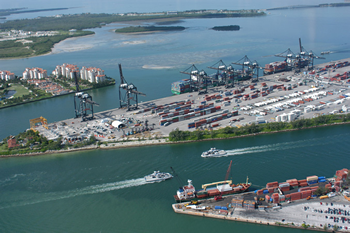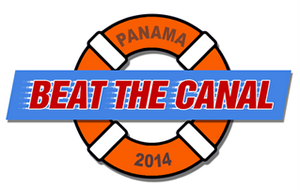 |
The expansion of the Panama Canal has created a highly competitive environment between US ports on opposing coasts. The Ports of Los Angeles and Long Beach in California are the most active shipping ports in the United States and serve as the integral link between Asian goods and the America marketplace. But as the Panama Canal expands with a 2014 target to open to wider, deeper container ships (the so-called Super Post Panamax Megaships), the West Coast might be bypassed in favor of delivery to Gulf of Mexico and East Coast US ports.
A group of West Coast port advocates has even formed an organization to press for reinvestment in expanding the capacity and capabilities of the West Coast ports to convince shippers not to bypass California in favor of passage through Panama.
Called the Jobs 1st Alliance, the group has marshaled itself around a 2014 campaign called Beat the Canal.
There are reasons for West Coast ports to be concerned. The Port of Miami, for example, is embarking on its Deep Dredge project. Dredging its channels to 50 feet in depth will allow the port to handle Super Post Panamax Megaships.
The ports of Norfolk, New York and Baltimore have already deepened their channels to accommodate these larger container ships, each of which is at least 22 containers wide. With the addition of Miami, the US East Coast will have significant import/export capacity and ready access to major consumer and manufacturing populations.
 |
Roughly 58% of the US population lives east of the Mississippi River, and the population density along the coast itself, from New Orleans around Florida and up to New York and Boston is clustered along the major waterways.
Without question, the Panama Canal’s expansion will impact shipping; and the expanded port options along the US East Coast will further influence arrivals from all over the world.
Dredging alone is not enough, however. In addition to the increased depth requirement, the cranes necessary for adequately managing cargo containers for Super Post Panamax Megaships weigh between 1600-2000 tons. This is roughly double the crane weight of what most large volume, large container ports use.
Crane foundation redesigns will likely require further infrastructure investment, such as the incorporation of geogrid reinforcement in foundations.
Geosynthetica will explore modern port constructions and other coastal engineering issues as they intersect geosynthetics in a series beginning in January 2012.











